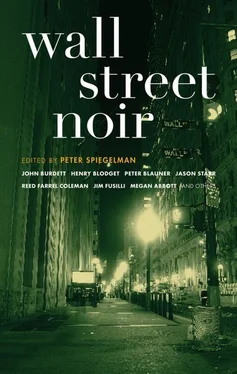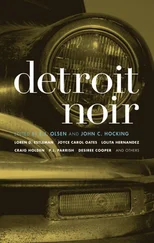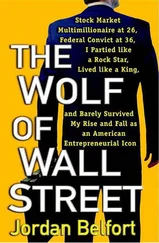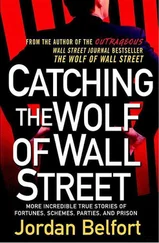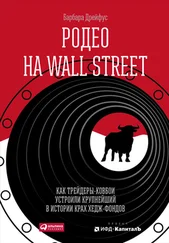Four. An unbelievable story
The three of us have lunch at an upscale Russian restaurant in Herzliya. This is diamond money, my father says, tapping his thin, manicured finger on the crisp white linen. Marc had the same fingers, long and elegant, a few neat black hairs above each knuckle as if they’d been perfectly embroidered. You wouldn’t think such pretty hands capable of such mischief.
My father divulges the plan over bowls of creamy pink borscht, blinis, caviar — comfort food, he says. On Sundays, as a boy, his father took him to visit Russian relatives in Brighton Beach and on the way home they ate lunch. He misses New York but won’t endure a trial. “I’ll die first,” he says, and he’s not joking. Gila says he carries vials of hemlock, at any moment ready to cut out on his own.
The plan is simple. I am to take a jump drive to Paris and deliver it to an associate, who’ll move the contents accordingly. Simple until I know how I’m carrying — “It’s small and thin,” my father says. “Undetectable as a tampon. And there’s something else you should know.”
“Don’t bother her with that,” Gila says, worried, I think. Spying has taught her to be stoic, controlled.
“She has to know, everyone’s on edge. The police are being extra-vigilant.”
“It’ll just make her nervous.”
He glowers at Gila, then me, knows something’s up, maybe? Her concern warms me, then nurtures paranoia: What if this conversation is staged? “Look, Jen, there was trouble here recently. Something like twenty companies were busted for spying on each other... It’s an unbelievable story. One day out of the blue, this mystery writer calls the police and says parts of his unpublished novel are appearing all over the Internet and they trace it to a virus planted on his computer—”
“No, not a virus,” Gila interrupts. “It was a Trojan horse, you know that.”
“Same thing.”
“No, it is not the same, the Trojan is much smarter, you have to invite it in. Tell the story right or don’t tell it. Already, you leave out that he was writing with his wife, they were a team, but the son-in-law was related to the wife.”
“He was after the husband, trying to humiliate him.”
Voices raised, the vein under my father’s left eye pulsing, Gila’s long neck coiled, they argue back and forth about who did what and when, a slick coat of oil congealing over the untouched blinis. The gist: Upset over his breakup with their daughter, the former son-in-law hacked into the mystery-writing couple’s computer with spying software, mining whatever he could and releasing it on the Internet, at times altered to sully the man’s reputation. He’d also sold his Trojan to a number of private detectives who used it to spy for their corporate clients.
“They were very sloppy,” Gila says.
“Israel has one of the most competitive business climates in the world,” my fathers says.
“They left a trail longer than a rocketship to the moon.”
“Without that writer — writers,” he winks at Gila, “they would have been fine, which is the takeaway here: Don’t mess with the family.”
“What’s on the drive?” I jump in, speaking loudly, as much to topple their excitement, the current between them, as to figure out what I’m in for. They angle toward me, my father no doubt wondering how much to divulge, whether it’ll make a difference. Everything I own, he says. No need to elaborate, it can’t be legal, and though my father’s gall shouldn’t stun me, throughout my life I’ve been his foil, I am slightly taken aback that he’d sacrifice me for his crumbling empire.
Gila excuses herself to go to the restroom, silencing my father and me as we stare, traces of her lingering, the after-glow. He sighs, “Did she tell you she worked for Mossad?”
I nod.
“She’s come up with things you wouldn’t believe if you saw them in a James Bond movie. Can’t imagine what I’d do without her. She’s amazing.”
“Oh, I know.”
“What’s that supposed to mean?”
My own version of the Israeli shrug: “ What?
“Don’t do anything stupid, Jen.” He cuts a fork into a hardened blini, me down to fourteen. “This is disgusting... Hey!” He barks a few words of Russian at the waiter, lights a cigarette, and we’re eye to eye.
“I’m not sure I’m going to do this for you,” I say.
“Then you might as well drive a stake through my heart.”
Gila returns as the waiter sets down another set of plates: blinis, chicken, salmon, chilled shots of vodka. “More food?”
“I take care of my people,” says my father, stubbing out his cigarette, then piling his plate. We eat together, talking of a gentrifying Tel Aviv, how to smoke a fish... through much of it, her toe tickling my ankle.
On the way home, Gila and I go shopping. We park off Allenby and walk to the shuk , but there’s nothing to buy. I wanted metal stalls with Oriental rugs, hookahs, kaffiyehs — years ago I’d bought one like Arafat’s in solidarity with the opposition. But now it’s just jellied sandals, cheap jeans, underwear, plastic sunglasses. Global capitalism run amok. Sensing my disenchantment, Gila takes me down a block to a bustling street fair. We stop and listen to a woman with eyes like caverns busk a Hebrew folk song, the refrain a desperate Anee rotzah, Anee rotzah (I want, I want)...
After my mother left, my father stayed late at the office. He’d fall asleep on his couch, then take long walks through the Fulton fish market, bargaining in the coldest hours for the catch of the day. Mornings we’d find men in thermal sweatshirts with grizzled faces and thick leathery fingers being served soft boiled eggs in tiny silver cups, strips of bacon, thick slices of toast dripping with butter, and my father, upon noticing Marc and me shyly hovering in our pajamas, beamed, “See how they taste it, it’s like they’ve never eaten an egg!” I have inherited his romance of the working class, a propensity for self-aggrandizing acts of tenderness.
Gila raises the corner of her mouth at the singer. “So horrible,” she says. I agree but toss a few coins in her sack, and we move silently, flanked by artists in canvas tents hawking jewelry, ceramic pots, stained-glass icons. A mime tries to engage us in faceplay, but we break away, walking toward the sea.
“You put that Trojan horse on my computer,” I say finally.
“Not that one... Mine is much better,” she says proud-ly.
“How long have you been spying on me?”
“For a little while only. We had to make sure you would come.”
“And here I am,” I smile. This time she holds it but has to go. Before dropping me off she tells me to keep my computer on.
Three. The ballad of the Trojan horse
Myth has it the Greeks won the Trojan War by sneaking their army into a giant hollow horse and rolling it into the city of Troy for the grand pillage. Gila stuffed her soldiers into “conference” files I’d blithely downloaded but swears there is no danger, my data is safe with her. It’s not the data I’m worried about. After midnight, my hotel room dark but for the computer screen, we talk through tiny windows:
— are you in love with him?
— interested, sure... but love?
— you have to understand, young men are filled up with themselves, they have nothing to say but who they are
— he’s more than twice your age
— this means nothing to me, if you saw him in action you’d understand
— that’s twisted and disgusting
— in business... you have a dirty mind
— better than dirty money
— he said you wouldn’t understand, you were too serious and wouldn’t respect who I am in this world, and for some reason I want to show you you are all wrong
Читать дальше
